Organization

With four museums in three German cities, the Haus der Geschichte der Bundesrepublik Deutschland Foundation presents contemporary history since 1945. The permanent and temporary exhibitions all draw on the Foundation’s extensive collections. By preserving these objects, which include (everyday) items, media and documents, the Foundation ensures memories and cultural assets do not disappear and get forgotten.
The independent Haus der Geschichte der Bundesrepublik Deutschland Foundation was established in 1990. A unit had been set up as a dependent foundation in 1986 to start the groundwork required. In 1994, the Haus der Geschichte opened in Bonn. The branch, which is also the Foundation’s head office, features the permanent exhibition and numerous temporary exhibitions. It is the Foundation’s largest museum.
In October 1999, the Zeitgeschichtliches Forum Leipzig opened, followed in September 2011 by the exhibition in the historical Tränenpalast in Berlin. Last but not least, in November 2013 the Museum in der Kulturbrauerei opened in the Prenzlauer Berg neighbourhood of Berlin.
Alongside the permanent exhibition and temporary exhibitions, the Foundation’s museums offer a diverse events programme and various educational formats for children, adults, schoolchildren and senior citizens. The museum magazine and countless books round out the services at the four branches. Moreover, the Foundation has a broad range of online projects on themes relating to contemporary history, such as websites, games and apps.
Origins
The Foundation’s history
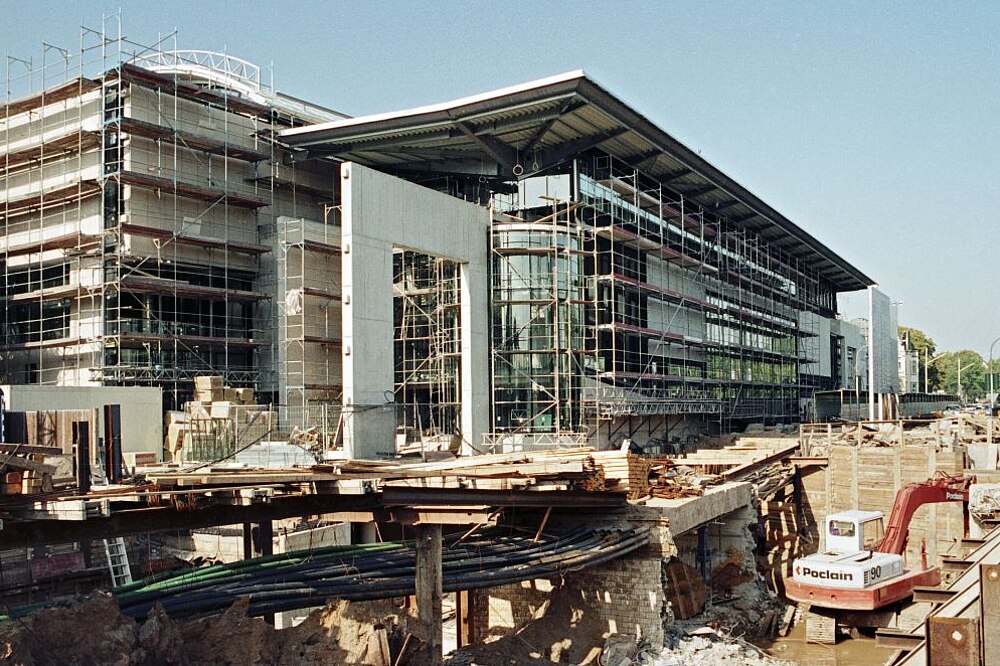
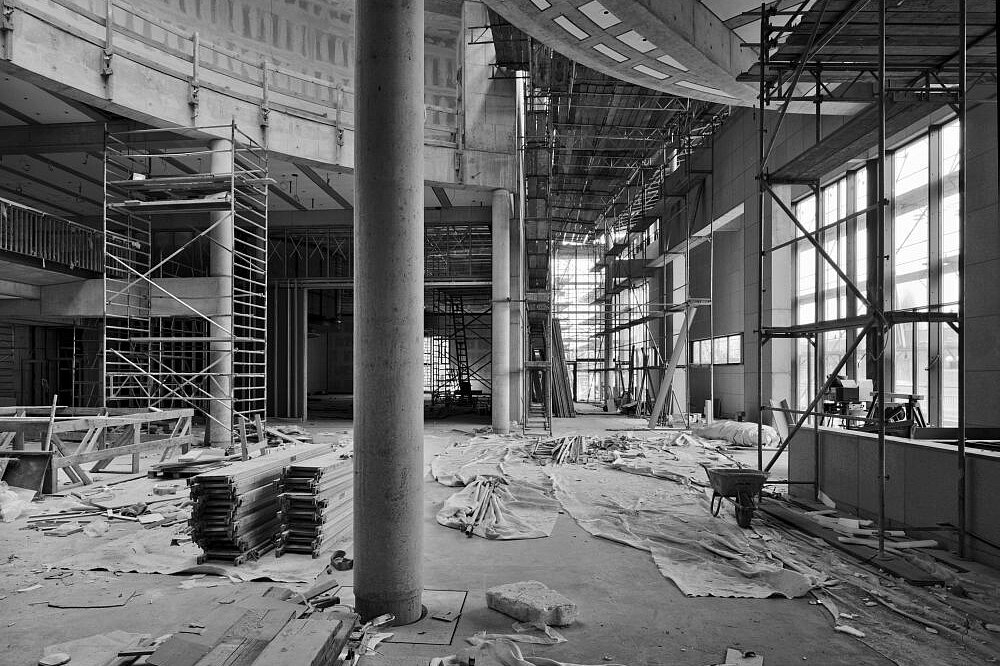
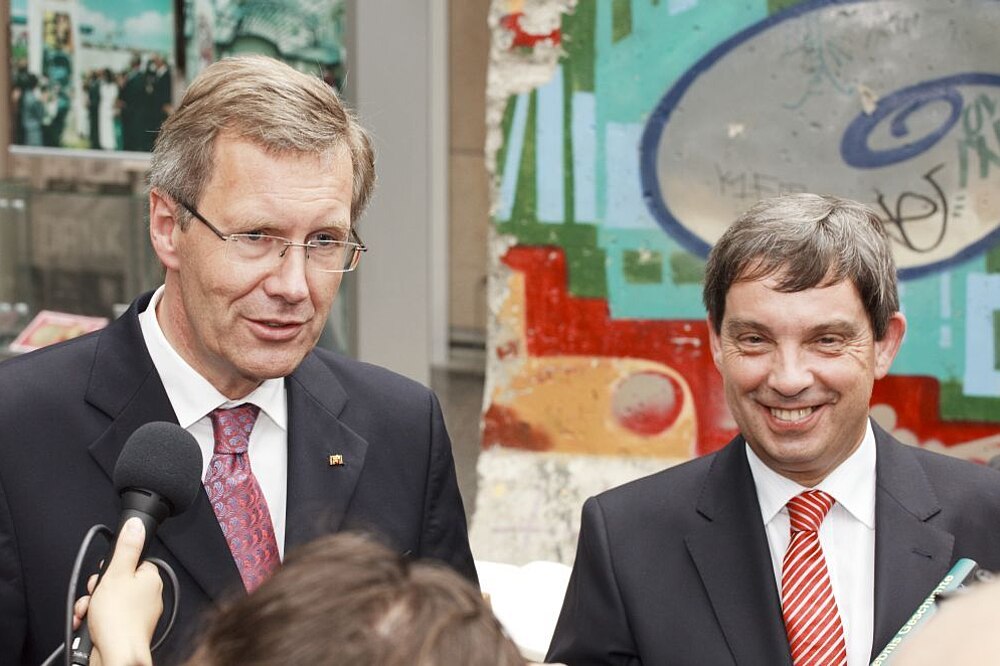
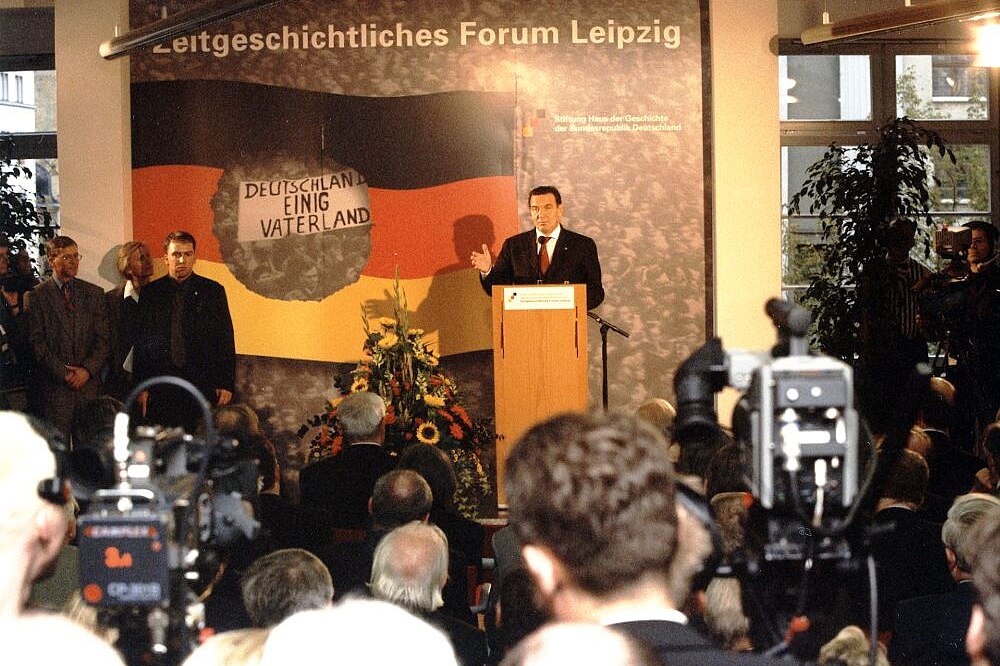
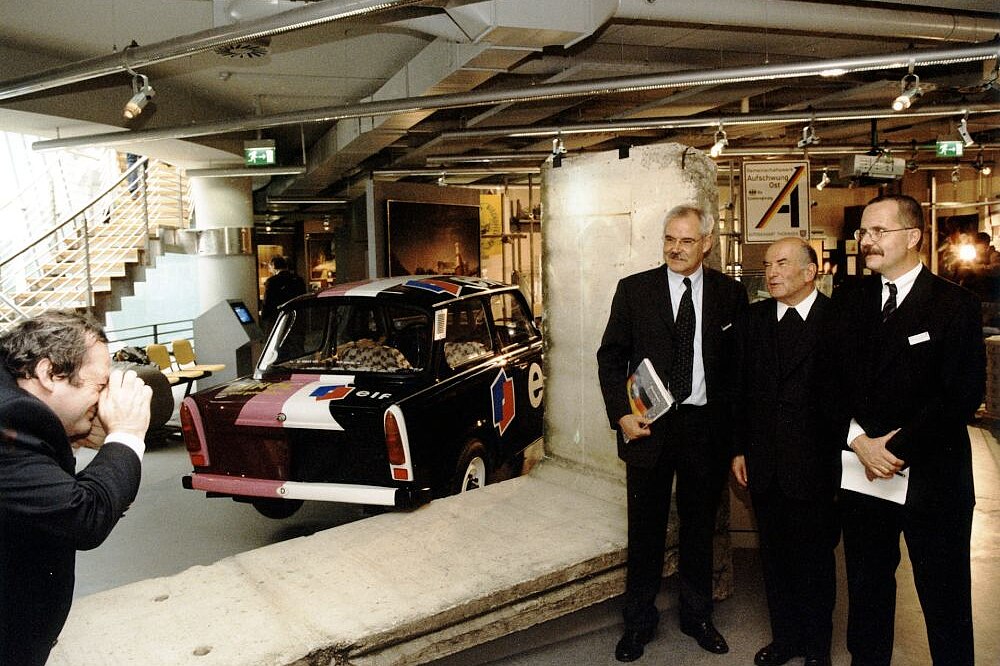
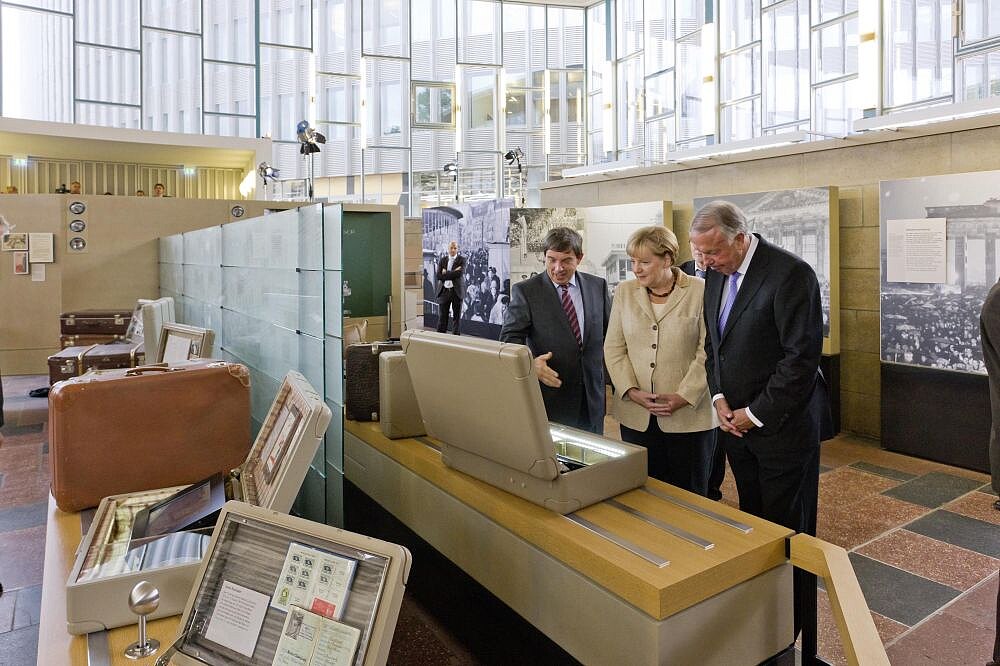
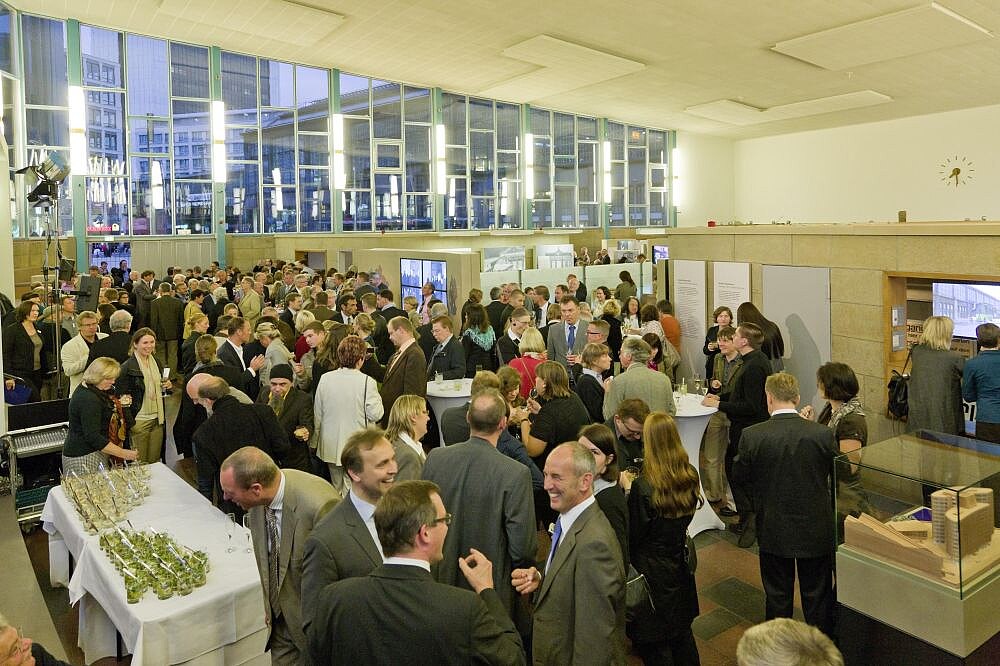
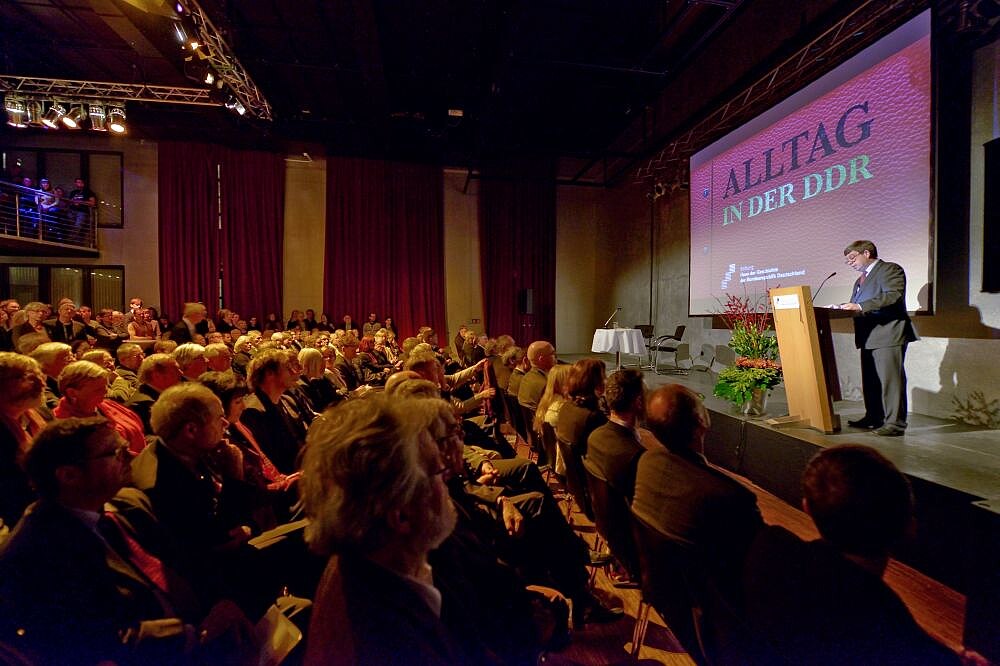
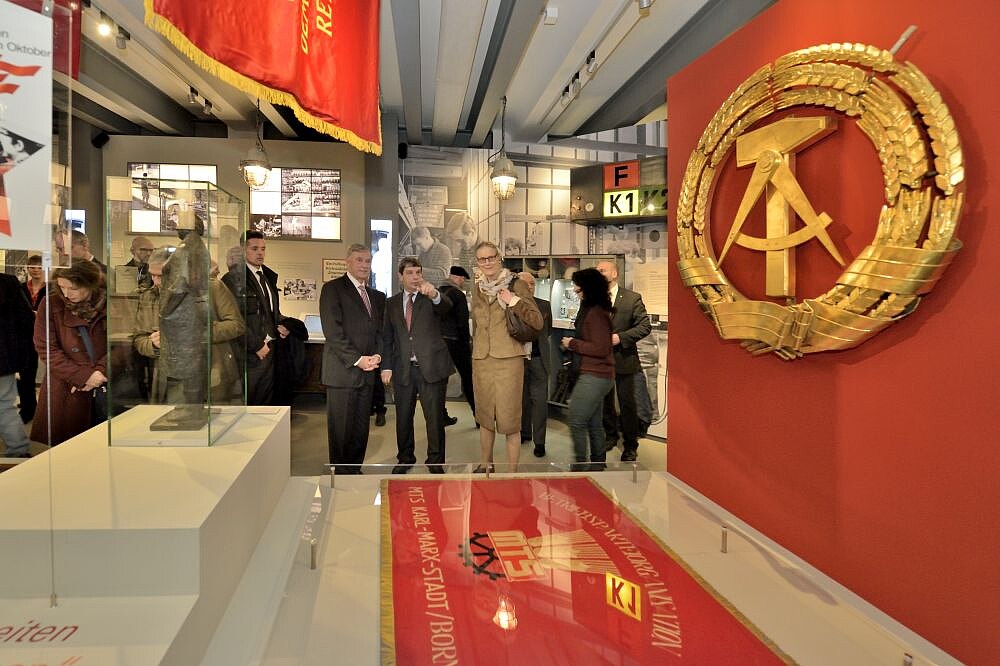
Origins
The Foundation’s history
The Haus der Geschichte Foundation was established in 1990 as an independent foundation. Four years later, the Haus der Geschichte opened its permanent exhibition in Bonn.
The Foundation was established in response to the first official declaration of the government under Federal Chancellor Helmut Kohl dated 13 October 1982. In it, he proposed establishing “a collection on German history since 1945”. In 1983 a commission of experts was set up with four historians: Chairman Prof. Lothar Gall (Frankfurt/Main), Prof. Klaus Hildebrand (Bonn), Prof. Horst Möller (at that time in Erlangen, now in Munich) and Dr. Ulrich Löber (Koblenz). Their preparatory work laid the foundations for the Haus der Geschichte. Ideas and suggestions from over 100 civil society groups, institutions and leading members of the worlds of politics, academia, society and business were considered. The Federal Ministry of the Interior established a dependent foundation by decree in 1986 and in 1990 this was transformed into an independent foundation by an Act of Parliament.
Haus der Geschichte
From 1986 onwards, work started on assembling a collection of historical objects in Bonn and a preparatory unit started designing a permanent exhibition. Construction work for the museum building began in September 1989. In June 1994, Federal Chancellor Helmut Kohl officially opened the permanent exhibition at the Haus der Geschichte. It has been thoroughly revised twice since then.
Zeitgeschichtliches Forum Leipzig
In 1992, the mission of the Haus der Geschichte Foundation was expanded to include establishing an “Archive of German Unity” in Leipzig. The Zeitgeschichtliches Forum Leipzig thus arose in downtown Leipzig as an exhibition, documentation and information centre. It was opened on 9 October 1999, the 10th anniversary of the Leipzig Monday Demonstrations, by Federal Chancellor Gerhard Schröder. The permanent exhibition centres on dictatorship and resistance in the Soviet Occupation Zone and Communist East Germany in the overall German and international context.
Berlin: Tränenpalast and Museum in der Kulturbrauerei
In September 2011, the Foundation opened the exhibition “Tränenpalast. Everyday Life in Divided Germany” in the historical departures hall at Friedrichstrasse railway station. In 2005, it took on the “Industrial Design Collection” with everyday objects and designer objects from the Soviet Occupation Zone (SBZ) and Communist East Germany. Parts of the collection have been on show since November 2013 in the permanent exhibition “Everyday Life in the GDR” at the Museum in der Kulturbrauerei..
ORGANS OF THE FOUNDATION
Boards and President
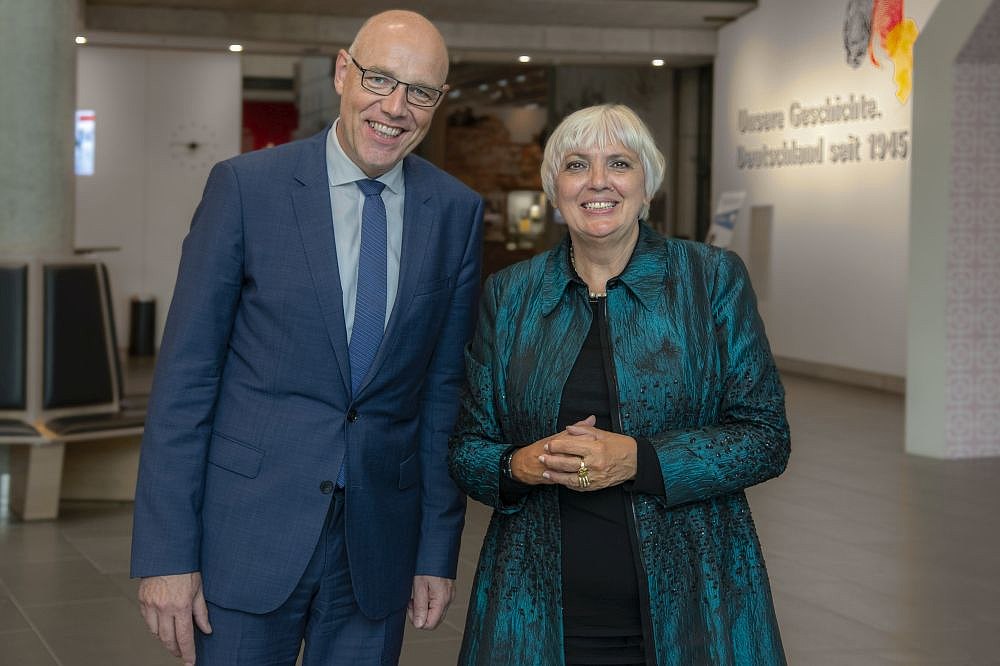
ORGANS OF THE FOUNDATION
Boards and President
The Haus der Geschichte Foundation has four organs: the Board of Trustees, the Academic Advisory Council, the Working Party of Civil Society Groups, and the President.
The Board of Trustees resolves all fundamental issues relating to content, finances and staff. The Academic Advisory Council and the Working Party of Civil Society Groups advice the Board of Trustees and the President. Together they help ensure that the Foundation can fulfil its mission.
The Board of Trustees is the Foundation’s supervisory body. It decides the budget, the fundamentals of the programmes, and on all key appointments. It is composed in equal part of members of the Bundestag, the federal government and the Bundesrat. The Board of Trustees is chaired by Dr. Andreas Görgen, Ministerial Director under the Federal Government Commissioner for Culture and the Media.
The Academic Advisory Council is made up of historians, political scientists, constitutional lawyers, and museum experts. It advises the Board of Trustees and the President, primarily as regards the conceptualization of temporary exhibitions and the substantive thrust of the permanent exhibitions in the four museums. The Academic Advisory Council is chaired by Prof. Dr. Joachim Scholtyseck.
The Working Party of Civil Society Groups sees itself as critically representing the interests of visitors. It is composed of representatives of the major religious communities, of employer and employee associations, the Federal Immigration and Integration Council, the German Women’s Council, the German Sports Federation, the Association of Expellees, the German Youth Ring and the key local authority associations. The Working Party of Civil Society Groups advises the Board of Trustees and the Foundation’s President. The Working Party is chaired by Regine Möbius.
The Board of Trustees appoints the President of the Foundation after consultation with the Academic Advisory Council and the Working Party of Civil Society Groups. The President conducts the Foundation’s business and decides on all Foundation matters to the extent that the Board of Trustees is not responsible for them. The President represents the Foundation both in and out of court.
STRUCTURES
Areas of work and officers
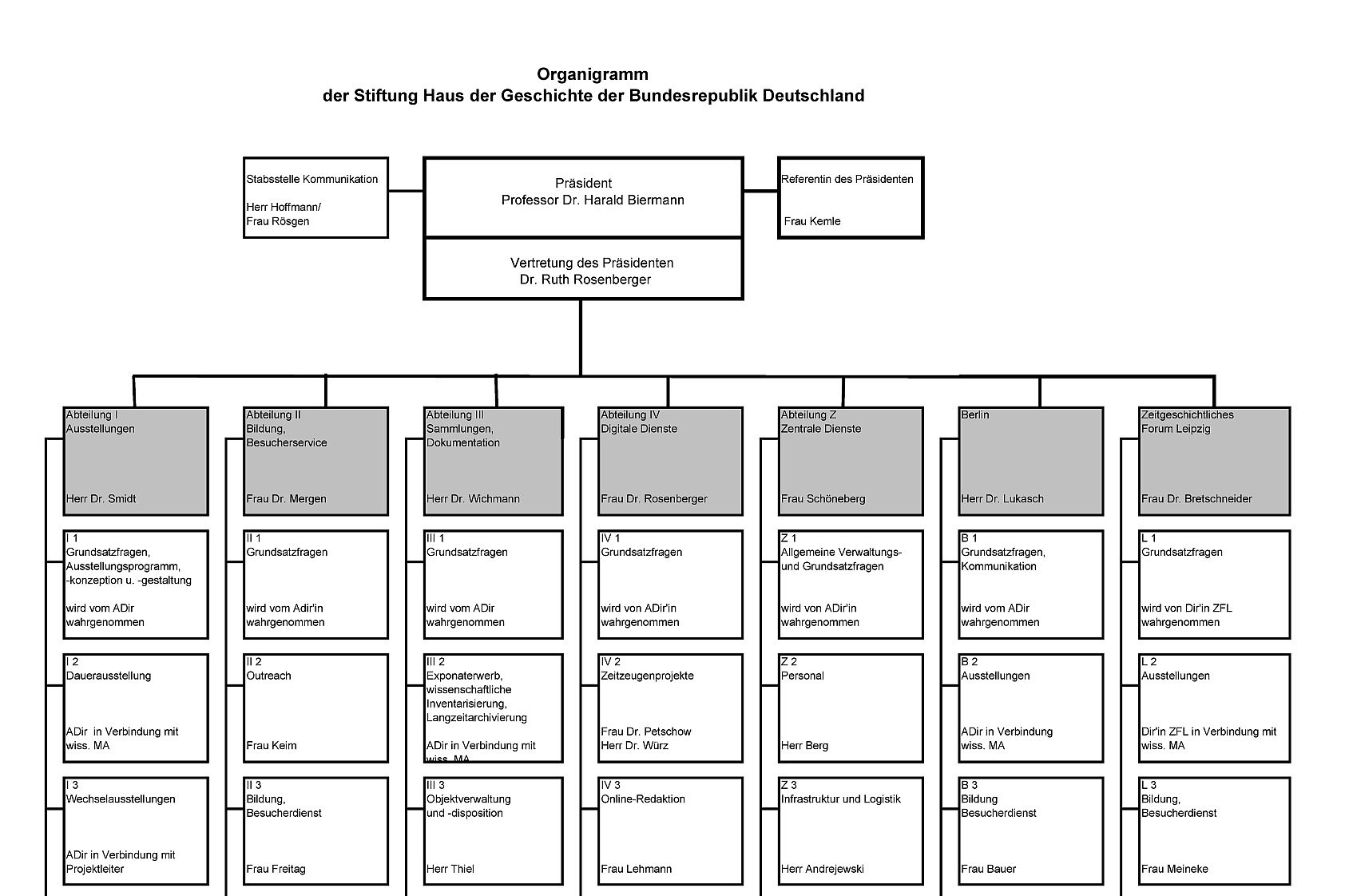
STRUCTURES
Areas of work and officers
The Haus der Geschichte der Bundesrepublik Deutschland Foundation is subdivided into seven sections: Section I: Exhibitions; Section II: Communications; Section III: Collections; Section IV: Digital Services; Section Z: Central Services and Administration; and the sections for the Zeitgeschichtliches Forum Leipzig and the two museums in Berlin. The sections are subdivided into specialist units.
The Foundation is managed and legally represented by its President, Prof. Harald Biermann. Dr. Ruth Rosenberger is Deputy President. Dr. Uta Bretschneider is Director of the Zeitgeschichtliches Forum Leipzig; the two Berlin museums are managed by Dr. Mike Lukasch.
Cooperations
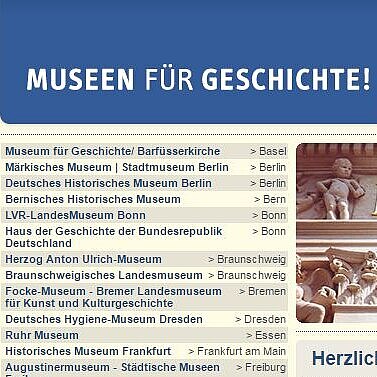
Museums for History
“Museums for History” is a network of 29 museums of (cultural) history in Germany, Austria and Switzerland. It addresses the cultural identity of cities, regions and countries in a united Europe. By addressing the question of what is our “own” and what is “foreign”, it contributes to current debates in society. The Haus der Geschichte Foundation is an active member of the network.
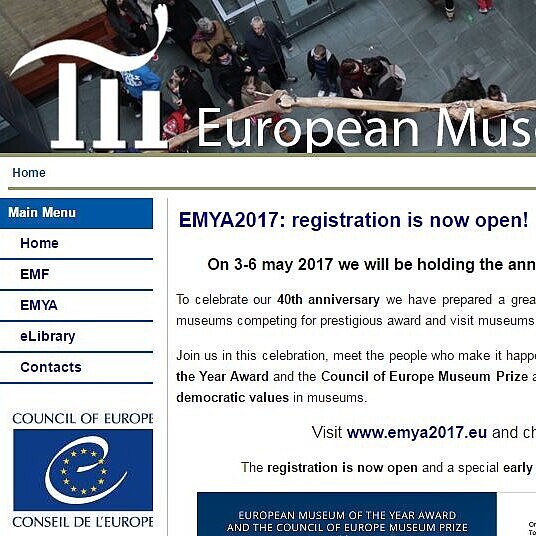
European Museum Forum
The European Museum Forum (EMF) is dedicated to fostering the due recognition and support of outstanding new museum projects in the Council of Europe member states. Among other things, each year the EMF bestows the prize of European Museum of the Year and submits proposals to the Council of Europe on who should win the Council of Europe’s Museum Prize. The Haus der Geschichte Foundation is a member of the EMF.
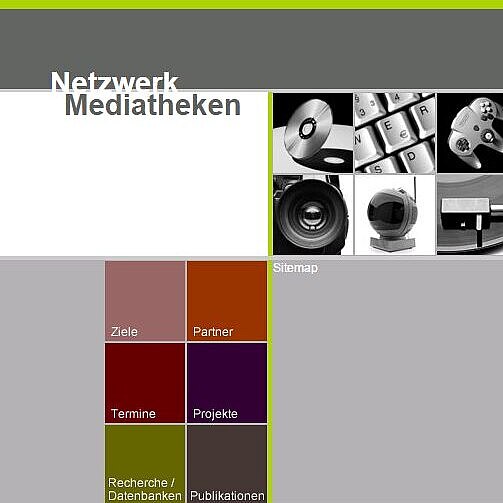
Media Libraries Network
Netzwerk Mediatheken, the Media Libraries Network, is an association of German archives, libraries, documentation offices, media libraries and museums. The network seeks to preserve and catalogue audio-visual sources and materials and make them publicly accessible. The Haus der Geschichte Foundation is an active member of the network. Clink the link below to search the media collections of member institutions.